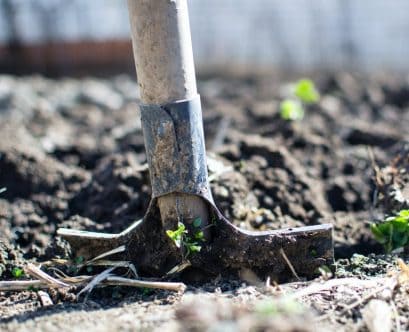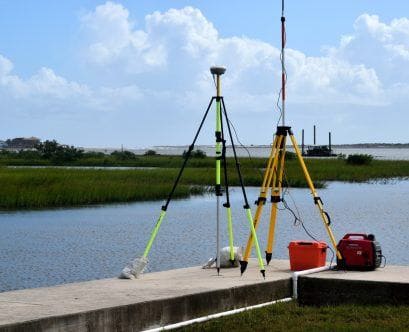Soil testing is an important aspect of many industries from real estate, to environmental site assessment, to agriculture. Healthy soil promotes healthy land quality.
Soil can be tested for contaminants, fertility, nutrient levels, PH levels, and many more things. Find out the many uses of soil testing, and its importance for crucial societal functions by reading on.
Soil Testing in Site Assessment
Soil testing is an important part of conducting a proper Environmental Site Assessment or ESA. These assessments are crucial when purchasing any property.
Environmental laws state that even if the prior owner is the responsible party for hazardous waste or other environmental degradation if the property changes hands the new owner is responsible for cleanup costs.
Imagine getting a steal of a deal on a chunk of land and finding out you owe millions of dollars in clean up costs for a mess that isn’t even yours. This is the sad reality for countless people across the nation.
Cheap land prices lure in many people. What they don’t know is that a gas station or chemical factory may have been occupying that space a few years ago. Their new property could be an undercover Superfund Site or Brownfield.
If harmful chemicals have leached into the soil, all of the soil needs to be removed, transported, and housed in a toxic waste storage facility per state and federal law. The cost of all of this can climb into the millions of dollars range fast.
The worst part is even if the new owner was unaware of the environmental degradation, they are still required by law to foot the bill. All of this can be avoided by conducting proper soil testing before buying a property.
It’s either that or get stuck with the cleanup costs. Ironically enough, part of these costs will be paying for numerous soil tests to verify that the land is healthy. Better to pay for one now, then hundreds later.
Soil Testing in Agriculture
Fertile soil is the cornerstone of high-yield agriculture. Maintaining soil integrity is a delicate dance of managing a multitude of different ecological factors. If the soil becomes depleted, your land may become barren and unable to grow crops.
The three main nutrients that make fertile soil conducive to plant growth are nitrogen, potassium, and phosphorus. There are many ways to preserve these nutrients in your soil, from plowing crops under in the off-seasons, to adding manure.
The first step in maintaining the integrity of your soil is to get it tested. With a soil sample, a lab can determine the levels of these vital nutrients in your soil. A soil sample can also tell you if your soil contains any harmful contaminants.
Also, certain crops grow better in soils with more acidic or basic characteristics. A soil sample can tell you what the PH level of your soil is so you can adjust it to your crop’s preferences.
Soil Testing in Ecology
Ecology is the study of the relationships between organisms and how they interact with their physical environment. Soil characteristics are one of the most important aspects of this physical environment.
Almost all biomes, ecotones, and habitats count on healthy soil to survive and thrive. The stronger the soil, the more resilient the environment and the larger its carrying capacity for flora and fauna.
Healthy soil increases biodiversity as well. Soil testing is used extensively in the fields of ecology, biology, silviculture, sustainability sciences, and other fields of environmental study.
One of the first things an environmental scientist will assess when analyzing an area of interest is soil quality. The characteristics of soil can tell a lot about the health and integrity of an ecosystem.
The only way to assess soil characteristics is through soil testing. This makes soil testing a cornerstone of many academic fields and areas of research, including ecology.
How Does Soil Testing Work?
There are a few different ways to get a soil test done. The most reliable is to call an environmental specialist that can deal with the whole process from start to finish. They will first provide you a quote based on your specific project.
Next, they will send out a professional to assess the area to be tested. They will then take soil samples at various locations and depths throughout the property.
They will focus on any area of interest as well such as those that border derelict holding tanks, abandoned buildings, or drainage pipes. Next, the samples will be sent to a lab for analysis.
Depending on the type of test you need, lab technicians will analyze soil characteristics such as toxicity, presence of heavy metals, nutrient levels, PH levels, silt and loam characteristics, and mineral content.
You can also request an analysis of specific characteristics for your unique soil situation. After a proper analysis of the data has been conducted, the environmental specialist will issue you a soil report detailing their findings.
If the professional option is not for you, there are also a variety of home soil test products on the market that can be completed on a do-it-yourself basis. These tests may be cheaper than a professional environmental consulting firm, but be wary.
They often provide inaccurate results that don’t reflect the true characteristics of your soil. They also require you to have a basic understanding of how to conduct proper soil testing.
This is a niche skill that is better left in the hands of professionals. However, if you choose to go this route it involves taking soil samples by your own hand, and mailing them into a lab independently.
Know Your Soil
Getting to know your land requires getting to know your soil. Getting to know your soil requires proper soil testing. The best way to get a proper soil test done is to contact a professional.
Contact the AAA group today to schedule your estimate. That way you can be sure to ensure the health and vitality of your land’s soil for years to come!






